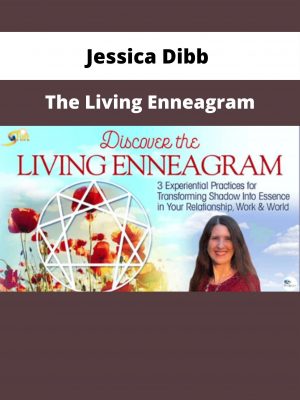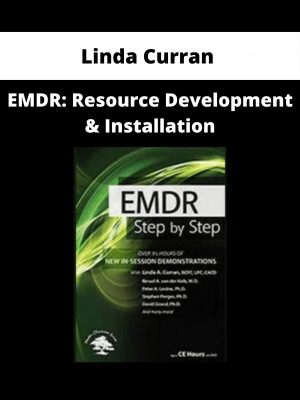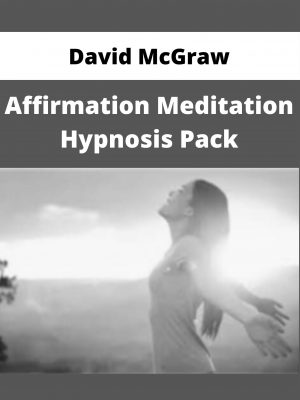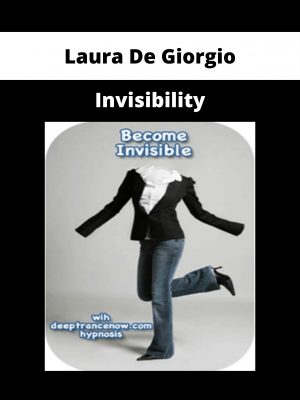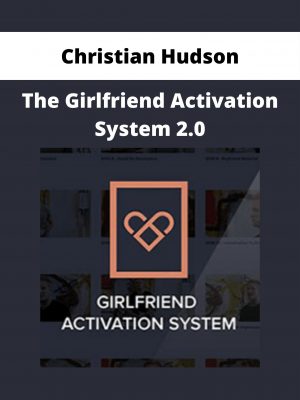Bruce Frantzis – Opening The Energy Gates Of Your Body
$28
Shopping Instructions:
- DISCOUNT 15% : SHOP15
- Product Delivery: Within 1 – 12 hours after purchase.
Bruce Frantzis – Opening The Energy Gates Of Your Body
Bone Marrow Is Energized
Chi gung affects the bones by directly infusing the bone marrow with energy. This technique is an advanced one, but by the time a disciplined practitioner reaches an advanced level of chi gung, the energizing of the bone marrow has started to occur.
Body Cells Are Healed
Masters of chi gung have been healing people suffering from chronic or incurable diseases since ancient times. In China today, there are sections of hospitals and clinics that use chi gung to treat conditions unresponsive to other methods of therapy, such as Western medicine, acupuncture and herbs. Here patients learn to regulate their own chi, with a little help from their therapist. The range of maladies amenable to such treatment is quite broad, ranging from nerve diseases, such as Parkinson’s, to cellular diseases, such as cancer.
The Process of Awakening Chi
Your body will awaken in stages. If you constantly practice chi gung, your body will open up in layers. Muscles that were initially numb will begin to regain sensation. Your body will reveal itself to you gradually, in a marvelous process of discovery. As your body becomes more alive you will be able to feel how your physical self works from the inside out.
Get immediately download Bruce Frantzis – Opening The Energy Gates Of Your Body
It is not farfetched to say that you may actually begin to feel your internal organs, for example, kinesthetically sense where your liver and spleen are, and what they are doing at any given time, as opposed to knowing this information only intellectually. This sensitivity allows for detecting potential problems well before they ever get to the point of causing trouble.
The Body-Awakening Process Is Irregular
The process of opening the body is more often like an uneven roller coaster than a linear journey. One week one part of your body will open; the next week another part will open, while a previously open part closes again. The process is a bit like a game of “now you see it, now you don’t.” The time will come, though, when your body will open up and stay open, completely accessible to your awareness.
Never Force Open Body Parts That Are Blocked
What happens if you encounter, and cannot get rid of, a particular block during standing chi gung or some other exercise? The answer is simple: Do not force it. Rather than remaining at that one unmovable block and working away at it fruitlessly for a prolonged time, just move on to the next step. You may find that the next day or week the immovable block will quite suddenly dissolve.
Your Chi Is Growing Even if You Cannot Feel It
What happens if you practice chi gung for a while but do not feel anything different happening in your body? This is, in fact, the case for many people. It takes time for you to become sensitive to chi, but a good rule of thumb to go by is as follows: If you find yourself feeling more comfortable, or if you are able to do more things without strain, or if you do not get sick as often as you used to, or if you start developing a type of effortless concentration and ability to do physical activities you never before even thought were possible–your chi is growing whether you are aware of it or not. Keep practicing and you will eventually feel the chi in a very real, direct way.
Strange Sensations Are Normal
Some of the common sensations people report when they feel the chi starting to move in their bodies include: feelings of warmth, extreme heat, electricity, heaviness, lightness, expansion, contraction, pressure, and internal sense of wind or water moving.
Chi Gung Frees Trapped Emotions
When energy enters your system it affects every level of your being. Some of its physical effects have already been mentioned. However, as the chi grows stronger in the body, it also charges up emotional energies.
Large numbers of people in the West are very repressed emotionally, as they have spent a great deal of time and effort learning to control their emotions. Emotions that have never been expressed stay in the energy body of a human being at the fringes of conscious awareness. As you open up the chi flow in your system, the chi can give emotional energy more power, just as it strengthens your physical energy.
Increased emotional energy enables you to feel your present emotions, as well as those you have suppressed for a long period of time. Emotions such as anger, fear, love, hate, sadness, or joy may arise for no apparent reason. Often during practice, or more commonly a few hours after, such feelings, stronger in nature, may suddenly appear. It is important to understand that these sensations, which we call emotions, do not require acting upon–just quietly experience them internally and let them wash through you.
If a person feels angry and takes it out on someone else, either physically or mentally, the anger many actually increase rather than be dispelled. On the other hand, if the dissolving techniques taught in this book are used on the “emotional body,” (see p. 51, “Nei Gung and The Energy Bodies”) that same anger can be transformed into a healthy, usable form. Behaviorally acting out negative emotional energy that was stuck to begin with may only further entrench it. Again, understand that nothing has to be “done” with this energy. You can merely observe it, monitoring it as it dissolves and is re-assimilated and ultimately transformed into a healthy constructive force. On the energetic level, it is just as unhealthy to throw excessive emotional energy around externally as it is to repress it.
The Taoist view of the transformation of emotional energy differs radically from the cathartic practices of either Eastern kundalini or Western group therapy. In the Shaktipat kundalini practice, catharsis is sometimes called kriya, or action. Here, the idea, in the early developmental stages, is to discharge emotional energy by various actions, such as screaming, yelling, crying, curling into the fetal position–moving through blocked emotional states until they are freed up. In group therapy (from primal scream to encounter, bioenergetics, and psychodrama) the idea is to emote your pain and agony externally, the louder the better, heaping verbal and physical abuse on a pillow or a person, as the case may be. Though these approaches are sometimes successful, the ancient Taoists detected an inherent problem with such techniques.
When pressure builds up in a pressure cooker, there are–within the cathartic model–only three options you have to handle the situation: 1) turn the heat off (i.e., deny, repress); 2) let some steam out at intervals; or 3) let all the steam out at once. Turning the heat off leaves the basic emotional situation unchanged. If you only let steam partially out, after a period, the pressure will build to again reach a critical level. All the “steam” can be let out of a trapped emotion at one blow, but the reality is that this particular event rarely occurs. Far more common for people with emotional blockages is that they let some, but not all, of the emotional pressure out, and then–as mentioned–the pressure rebuilds until they have to “cathart” again.
The cathartic release of violent emotions irritates and exhausts the system, and can sometimes foster an addictive need to feel those violent emotions in ever-stronger forms. Cathartic methods may easily turn practitioners into therapy junkies–angry people become angrier still, for instance, or depressed people sink deeper into depression, while deluding themselves into thinking that they are working on self-improvement.
Taoist Therapy Emphasizes Dissolving Emotions into the Flow of Chi
The Taoists found that emotional energy can be manipulated more or less like physical energy. Thus, Taoist practices are based on allowing emotional energy to move through your system until it completes itself; there is no attempt to push the energy out or to prevent it from occurring in the first place. The principles are quite similar to what one finds in acupuncture. In acupuncture, when a needle is first inserted into a point in the body, the needle may vibrate as it encounters blocked energy. When this blocked energy finally breaks through and continues moving on its path, the needle then stops shaking. It does not matter how powerful the energy going through the line (or meridian) is; what is important is whether or not it gets stopped or blocked.
Therefore, simply let the emotional energy that comes up find its way through your system. If the emotions are too strong for you to handle, follow the same pattern suggested for dealing with a block in the physical body; namely, back off and try to dissolve the block again later, so that it diminishes slowly over time. Attempting to resolve the situation in one great extremist heroic effort will not work, and may cause a lot of unnecessary misery.
Emotions are only sensations, which we then designate as good or bad. The sensations themselves are fairly neutral. Chi gung practitioners learn to differentiate between frequencies of energy that are intrinsically benevolent to their emotions (but nonetheless can evoke thoughts, even uncomfortable ones, that have to be dealt with) and energy running through the emotional body that is essentially malevolent; that is, destructive to the overall energy system.
The arousal of emotional issues during the practice of chi gung is a positive sign. It is far better to move through old emotional blocks than to go through life emotionally shut down. It is significantly healthier to learn to dissolve, on a daily basis, the negative emotions you are constantly exposed to than absorb them and then abuse your spouse, child, dog, or anyone else who happens to be around you.
It is my hope that the emotional-release function of chi gung, almost unknown in the West, becomes common knowledge. It is extraordinarily powerful, humane and gentle, and could prove of great value in the Western world. Chi gung for emotional energy transformation is not dramatic, just effective.
Get immediately download Bruce Frantzis – Opening The Energy Gates Of Your Body
The effect of chi gung practice on those with severe psychological or emotional problems is unpredictable. These people should not practice chi gung without being monitored by an appropriate health care professional. In the East, sometimes people with these problems may be able to go to ashrams or monasteries, where their practice can be closely monitored and adjusted as necessary to work towards a successful outcome. Such facilities are rarely found in the West.
Cultivate Your Chi Slowly and Safely
All safe chi development practices are cumulative and progress slowly, developing strong links between the brain and the chi. In this context, “strong” refers to the ability of the nerves to convey messages between the mind and the chi clearly, with sufficient “insulation” and “resistance” to avoid burnout. A strong nervous system allows messages to be delivered between the brain and the chi without conscious will or effort. Until the nerves have been developed, the will must be used to transmit messages, much as a baby at first has to use tremendous will power to crawl and walk until the appropriate nerve pathways between the brain and the chi are forged. Once those links are in place, you do not need to think about walking, you simply walk.
The development of chi must of necessity be slow and steady in order for it to be stable. Once this is understood, it is easy to see how the incorrect practice of chi gung can lead to problems. Appendix C talks about this issue.
Internal Exercise
Internal exercise is about training you to feel and change all aspects of your inner ecology: physically, emotionally, energetically, mentally, psychically and spiritually. It is more than just being aware of what is in your mind or training it to be more competitive, aggressive or more highly motivated to accomplish your goals.
Most people have not been trained to feel deeply inside their bodies. Although most people can feel their large muscles move and feel and locate pain, they cannot feel much else.
This is because they have not been trained to know and to feel how their bodies work. For example, if you ask people whether they can feel their liver or their kidneys, many will not even know where these organs are located, much less be able to feel them.
Internal exercises progressively train you to feel the deep physical and energetic states inside your body and how they influence your mind and spirit. As you learn to access deeper levels, you will work with the most subtle and powerful forces within yourself. Internal exercise creates the possibility of enhancing your conscious awareness of the mind and body.
Depending on the exercise system, focus will be placed on some or all of the following–physical alignments (biomechanics), breath, energy and spirituality–to help increase your level of awareness.
Exercises that are primarily internal include Taoist energy arts such as chi gung, tai chi and ba gua; classic hatha yoga; and Taoist and pranayama breathing.
Some forms of Western exercise, such as Pilates and the Feldenkrais Method, combine external exercise and some aspects of internal training. Increasingly, sports coaches and external martial arts instructors are incorporating internal elements from Eastern and Western systems into their trainings.
Alignments: Biomechanics
At a beginning level, the external aspect of internal training is biomechanics. Biomechanics teaches how different parts of the body can be aligned and trained to move most efficiently. The foundation elements start with the physical alignments of the body (posture) and look at how alignments and movement affect coordination, energy flow, emotions, etc. Biomechanics deals with the following questions:
� How do you correct conditions such as a hunched or stooped back; a collapsed midriff; fallen arches; and tense shoulders and back muscles?
� What is the best way to coordinate the physical movements of your limbs so that they work together in a relaxed, synergistic and whole-body fashion?
� How do different chi gung and yoga asanas, body alignments, postures and movements affect your tension and stress?
� How can tension be released, not just from your muscles, but from deeper within your body, such as from ligaments, tendons, joints, tissues, internal organs and bones?
� How can the alignments of your muscles, bones, ligaments and joints progressively be made to work together at higher levels of efficiency?
� How can you originate or power the movement of one part of your body from different or multiple other parts with specific internal muscle or joint sequencings?
� How can you use alignments to control your flow of energy?
� How can your body, mind and energy align to move simultaneously and well?
Although all these questions are connected with biomechanics, the specific methods for answering them differ among various exercise systems. For example, the Western military posture–shoulders and chest thrust back, belly sucked in and tense, joints stiffly held–may help induce the anger and aggression commonly associated with fighting and battle. The chi gung posture–relaxed joints, chest rounded, belly relaxed–helps promote balance and calmness of mind. This posture is also a major component of the internal martial arts (tai chi, hsing-i and ba gua).
Although training in the most sophisticated biomechanic methods is probably missing from your average gym, it is being increasingly incorporated into sports medicine, professional and Olympic training, as well as in some amateur sports and martial arts.
Get immediately download Bruce Frantzis – Opening The Energy Gates Of Your Body
Here’s What You’ll Get in Bruce Frantzis – Opening The Energy Gates Of Your Body
Bruce Frantzis – Opening The Energy Gates Of Your Body : Sample
Related products
NLP & Hypnosis
NLP & Hypnosis
NLP & Hypnosis
iAwake Technologies – Beginner’s Mind (Neuroflow Series) [6 WebRips – WAV User Manual – PDF]
NLP & Hypnosis
NLP & Hypnosis
NLP & Hypnosis
NLP & Hypnosis
NLP & Hypnosis


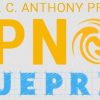
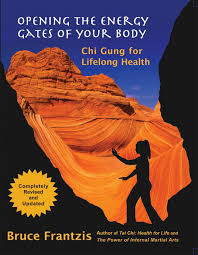


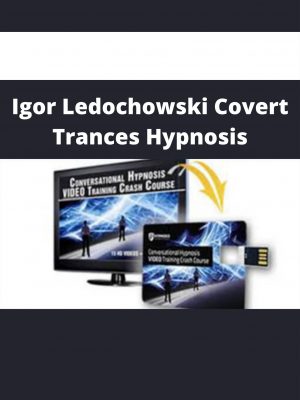
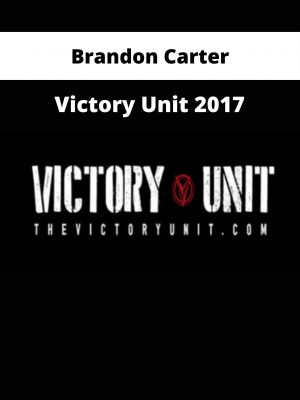
![Iawake Technologies – Beginner’s Mind (neuroflow Series) [6 Webrips – Wav User Manual – Pdf]](https://copicourse.com/wp-content/uploads/2021/08/iawake-technologies-beginners-mind-neuroflow-series-6-webrips-wav-user-manual-pdf-300x400.jpg)
